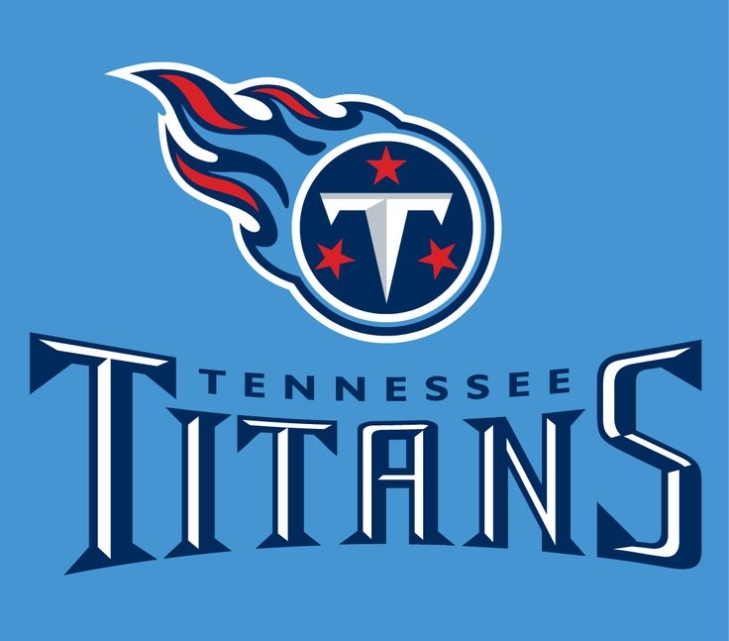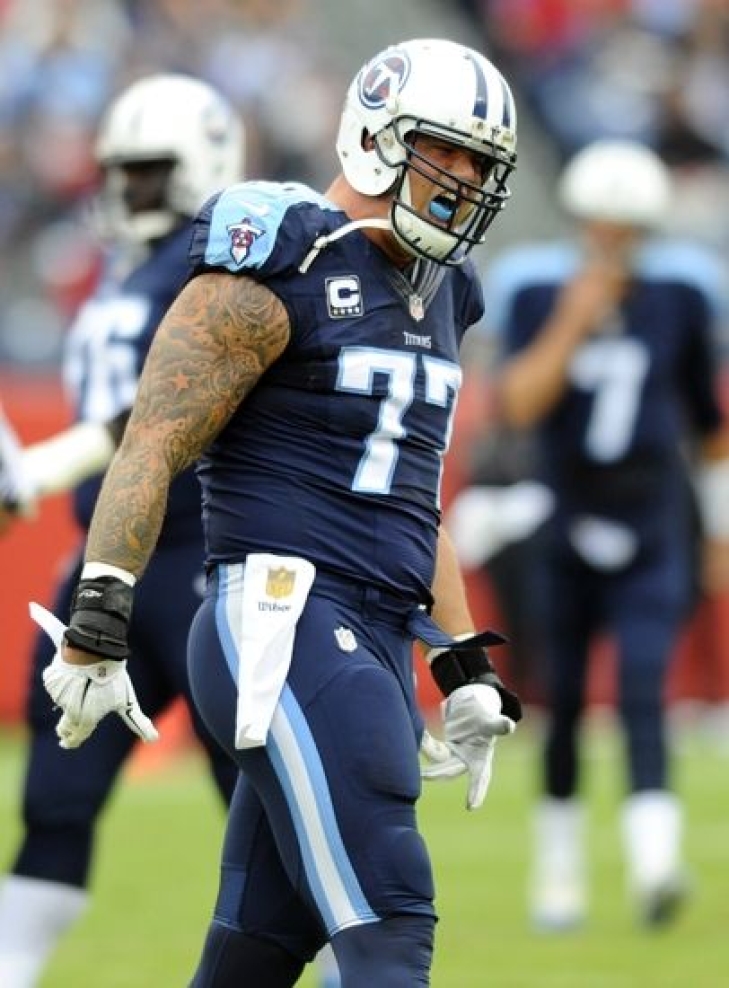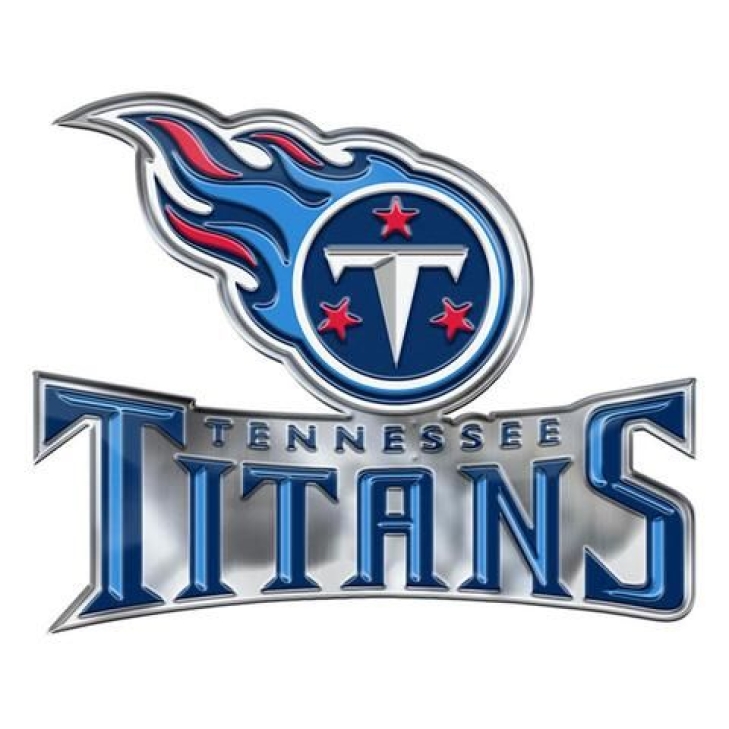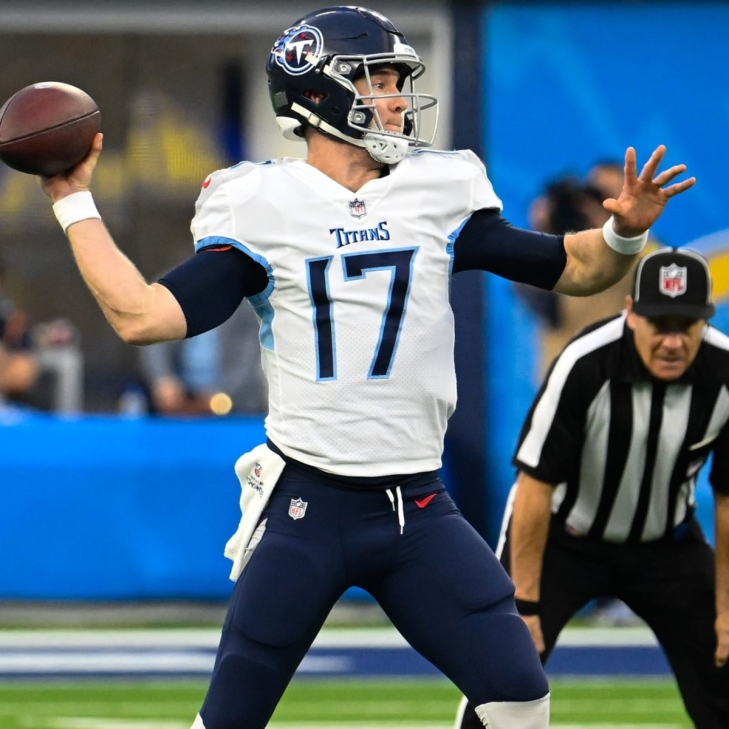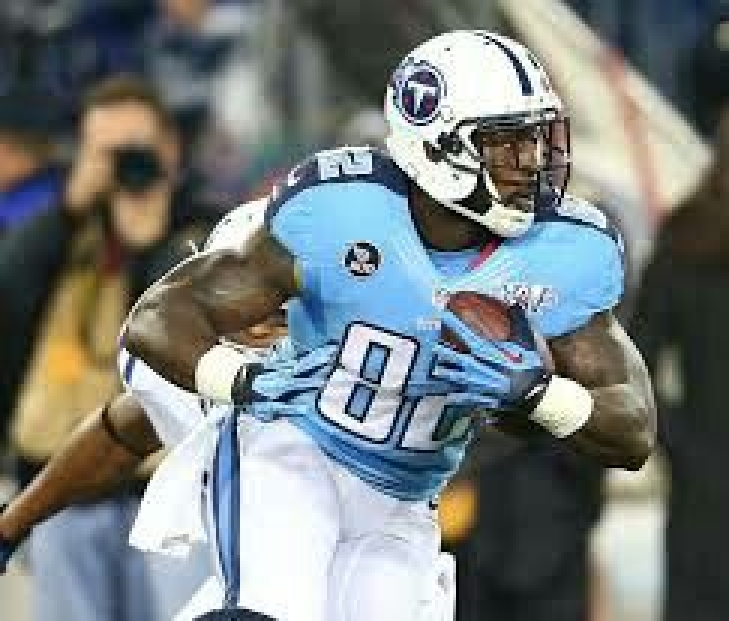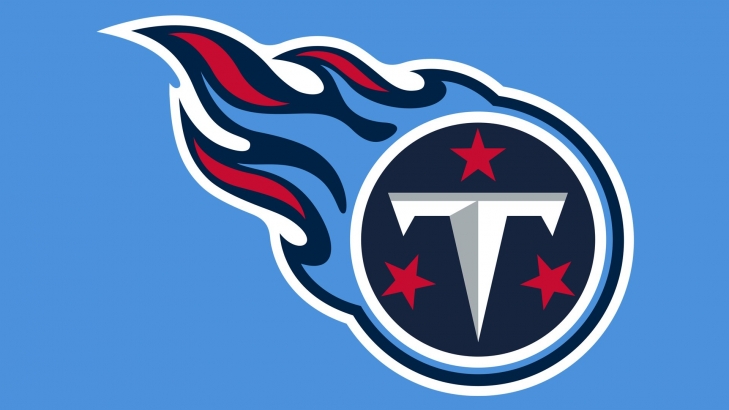Our All-Time Top 50 Tennessee Titans have been revised to reflect the 2023 Season
Yes, we know that this is taking a while!
As many of you know, we at Notinhalloffame.com are slowly generating the top 50 of each major North American sports team. That being said, we have existing Top 50 lists and consistently look to update them when necessary and based on necessity. As such, we are delighted to present our post-2023 revision of our top 50 Tennessee Titans.
As for all of our top 50 players in football, we look at the following:
1. Advanced Statistics.
2. Traditional statistics and how they finished in the National Football League.
3. Playoff accomplishments.
4. Their overall impact on the team and other intangibles that are not reflected in a stat sheet.
Last year, the Titans had a losing record of 6-11 and are in rebuild mode. There were only two elevations and no new entries.
As always, we present our top five, which saw no changes:
1. Bruce Matthews
2. Warren Moon
3. Mike Munchak
4. Earl Campbell
5. Robert Brazil
You can find the entire list here.
Running Back Derrick Henry, whose run with Tennessee ended last season, moved up to #9 from #14.
Of note, Kevin Byard, who was traded to Philadelphia during the season, remained at #28.
Quarterback Ryan Tannehill, who is currently a free agent only moved up one spot to #48.
We thank you for your continued support of our lists on Notinhalloffame.com.
Taylor Lewan
Taylor Lewan was the third Offensive Linemen taken in the 2014 Draft (11th Overall), and he arguably has been more successful than the two (Greg Robinson and Jake Matthews) selected ahead of him.
Lewan would win the starting job at Left Tackle during his debut season, finishing as an All-Rookie, and he progressively got better, rattling off three consecutive Pro Bowls from 2016 to 2018. Lewan holds a spot as one of the better Offensive Lineman in franchise history, even if his overall profile is not highly regarded out of Tennessee.
#125 Overall, Jeffery Simmons, Tennessee Titans, Defensive Tackle, #23 Defensive Lineman/Linebackers: Pass Rushers
2023: Pre-Season Rank: #135, 2022 Pre-Season Rank #138. Peak Period: 2019-23
Entering his fifth season in the NFL, Jeffery Simmons' streak of Pro Bowls and Second Team All-Pros ended in 2023, though there is much hope that the restructured Titans' defense can put Simmons back on track.
Our All-Time Top 50 Tennessee Titans have been revised to reflect the 2022 Season.
Yes, we know that this is taking a while!
As many of you know, we here at Notinhalloffame.com are slowly generating the 50 of each major North American sports team. That being said, we have existing Top 50 lists out and we always consistently look to update them when we can and based on necessity. As such, we are very happy to present our post 2022 revision of our top 50 Tennessee Titans.
As for all of our top 50 players in football we look at the following:
1. Advanced Statistics.
2. Traditional statistics and how they finished in the National Football League.
3. Playoff accomplishments.
4. Their overall impact on the team and other intangibles not reflected in a stat sheet.
Last year, Tennessee did not make the playoffs, but we saw one new entrant and one significant jump.
As always, we present our top five, which was not affected by the last season:
2. Warren Moon
3. Mike Munchak
You can find the entire list here.
Running Back, Derrick Henry, advanced to #14 from #20.
Quarterback, Ryan Tannehill, makes his first appearance at #49.
We welcome your input and comments and as always, we thank you for your support.
48. Ryan Tannehill
Ryan Tannehill began his first six NFL seasons in Miami, and when the Tennessee Titans traded for him in 2019, there was not much buzz around him in the Volunteer State. He started the year as Marcus Mariota’s backup, and took over during their week 6 contest in the second half. Tannehill would take over as their starting Quarterback, and completed the year so strong that he led the NFL in Passer Rating (117.5), Yards per Completion (13.6) and Yards per Attempt (9.6). Thanks to Tannehill, the titans made it to the AFC Conference Final, falling to the eventual Super Bowl Champion, Kansas City. He was also named to the Pro Bowl, the first time he secured such an accolade, while also winning the Comeback Player of the Year.
Tannehill proved that 2019 was not a fluke, winning 11 Games in 2020 and returning to the playoffs. He threw for 3,819 Yards and a career-high 33 Touchdowns, and topped the league in Fourth Quarter Documentaries (5) and Game Winning Drives (6). After a decent 2021 and another post-season appearance (3,734 Yards/21 TD), Tannehill dealt with injuries and a sub-par performance, throwing for only 13 Touchdowns and 2,536 Yards.
Tannehill would lose his starting job during the 2023 season after an injury, and he threw for 1,616 Yards and 4 Touchdowns. Tennessee did not resign the QB and he overall compiled 14,447 Passing Yards with a 93-40 TD-INT ratio.
Delanie Walker
Delanie Walker was one of the best offensive players in Central Missouri State history, and he became one of the rare players from the school to be drafted, when San Francisco chose him in the Sixth Round in 2006.
The Niners used him at Fullback, Tight End and as a Gunner, and he his versatility gave him the “Swiss Army Knife” nickname. While he showcased value for San Francisco, he settled in a Tight End role with the Tennessee Titans, the team he signed with in 2013. Walker adopted to being a full-time TE well, going to three straight Pro Bowls from 2015 to 2017, including a 1,088 Yard year in 2015.
Ankle problems derailed Walker early in 2018 and he only played one more year, although sparingly. He left the game with 5,888 Receiving Yards and 36 Touchdowns from the air.
Our All-Time Top 50 Tennessee Titans have been revised to reflect the 2021 Season.
Yes, we know that this is taking a while!
As many of you know, we here at Notinhalloffame.com are slowly generating the 50 of each major North American sports team. That being said, we have existing Top 50 lists out and we always consistently look to update them when we can and based on necessity. As such, we are very happy to present our post-2021 revision of our top 50 Tennessee Titans.
As for all of our top 50 players in football we look at the following:
1. Advanced Statistics.
2. Traditional statistics and how they finished in the National Football League.
3. Playoff accomplishments.
4. Their overall impact on the team and other intangibles not reflected in a stat sheet.
Last year, the Titans made it to the playoffs and looked to have a serious chance at winning it all. They didn’t make it to the Super Bowl, but this is a potent team that could capture the brass ring in February. There are two new additions on our list, one of whom, should have been on our inaugural list last year.
As always, we present our top five:
2. Warren Moon
3. Mike Munchak
You can find the entire list here.
Safety, Kevin Byard, who should have been included last year, makes his first appearance on the list at #28. He is now a two-time First Team All-Pro.
Offensive Lineman, and three-time Pro Bowl Selection, Taylor Lewan, makes his debut at #45.
We welcome your input and comments and as always, we thank you for your support.
45. Taylor Lewan
Taylor Lewan was the third Offensive Linemen taken in the 2014 Draft (11th Overall), and he arguably has been more successful than the two (Greg Robinson and Jake Matthews) selected ahead of him.
Lewan would win the starting job at Left Tackle during his debut season, finishing as an All-Rookie, and he progressively got better, rattling off three consecutive Pro Bowls from 2016 to 2018. Lewan’ holds a spot as one of the better Offensve Lineman in franchise history, even if his overall profile is not regarded out of Tennessee.
28. Kevin Byard
Kevin Byard is one of the most prolific defensive stars from Middle Tennessee State where the All-Conference USA star was a Third Round Pick in the 2016 Draft.
In his rookie season, Byard would win a starting job at Safety, but if there was an award for Sophomore of the Year, Byard could have staked a claim for it. Byard was a co-leader in Interceptions (6) while going to the Pro Bowl and securing First Team honors that year, and although he did not come close to to that production from 2018 to 2020 in traditional and advanced metrics, he was still a solid starter in the NFL.
Byard returned to Pro Bowl and First Team All-Pro form in 2021, which coincided with his move from Free Safety to Strong Safety. He was traded to the Philadelphia Eagles at the 2023 trade deadline, and the Defensive Back left Tennessee with 27 Interceptions.
Our All-Time Top 50 Tennessee Titans are now up
Yes, we know that this is taking a while!
As many of you know, we here at Notinhalloffame.com are slowly generating the 50 of each major North American sports team. We have a new one to unveil today, that of the Tennessee Titans.
An original team in the American Football League, the Tennessee Titans, began their existence as the Houston Oilers.
The Oilers were the first power of the league, winning the first two Championships and losing the third title game. As the AFL merged with the NFL, the Oilers had flashes of greatness but were unable to make the Super Bowl.
The team would relocate to Nashville in 1997 and be rebranded the Tennessee Titans. Though they have yet to win a Super Bowl, they did make one, losing SB XXXIV to the St. Louis Rams.
Our Top 50 lists in football look at the following:
1. Advanced Statistics.
2. Traditional statistics and how they finished in the National Football League.
3. Playoff accomplishments.
4. Their overall impact on the team and other intangibles not reflected in a stat sheet.
Remember, this is ONLY based on what a player does on that particular team and not what he accomplished elsewhere and also note that we have placed an increased importance on the first two categories.
This list is updated up until the end of the 2020 Season.
The complete list can be found here, but as always, we announce our top five in this article. They are:
2. Warren Moon
3. Mike Munchak
We will continue our adjustments on our existing lists and will continue developing our new lists.
Look for our more material coming soon!
As always, we thank you for your support.
47. Al Smith
From Utah State, Al Smith played his entire 125-Game career with the Houston Oilers, an excellent career for the former Ute.
Smith was a starter as a rookie (1987), and the run-stuffer would become a Pro Bowl selection in 1991 and would be again in 1992. The latter year saw Smith earn a First Team All-Pro honor, and overall he had 880 Tackles.
Smith was severely injured through most of his last two seasons, playing only three Games and retiring after the 1996 Season.
46. Kevin Mawae
Kevin Mawae played his first four NFL seasons with Seattle and the next eight with the New York Jets, where he had a seven-year streak of Pro Bowl Selections. When the Jets released Mawae in 2006, the Titans were more than happy to acquire him to shore up their Offensive Line.
At Center, Mawae protected a rookie Vince Young, who had his best season in the NFL, winning the Offensive Rookie of the Year. Young regressed, but Mawae got better as he aged, going to the Pro Bowl in both 2008 and 2009, earning a First Team All-Pro in the latter, which would be his final NFL season.
Not a bad way to go out!
Mawae was inducted into the Pro Football Hall of Fame in 2019.
44. Michael Roos
After establishing himself as arguably the most outstanding Offensive Lineman in Eastern Washington history (the school retired his number), Michael Roos was taken in the Second Round of the 2005 Draft by the Tennessee Titans. Roos played his entire pro career with the Titans and started all 148 of his Games.
Roos was a Right Tackle as a rookie, and he moved to the left side afterward, and stayed there until he retired after the 2014 Season. He was named to the Pro Bowl in 2008 and was a First Team All-Pro that year. Roos followed that up as a Second Team All-Pro the season after.
Roos never had another pair of years like that, but he was a strong presence for the Titans for a decade, and few can say that.
43. Pat Holmes
Pat Holmes took an atypical route to the NFL, as in 1962, he passed up on the Philadelphia Eagles, who took him in the Third Round in 1962, and went to Calgary Stampeders of the CFL instead. A CFL All-Star in 1965, Holmes went back to the United States in 1966, though not to Philadelphia, but Houston of the American Football League.
Holmes became one of the few players to earn All-Stars in both the CFL and AFL when the Defensive Lineman earned the latter honor in his second season with the Oilers. He was also a First Team All-Pro that year. Holmes was an All-Star again in 1969, and he remained with Houston until 1972 when he joined the Kansas City Chiefs.
With the Oilers, Holmes recorded an even 30.0 Sacks.
42. Fred Glick
After two unimpressive years with the Chicago/St. Louis Cardinals of the NFL, Glick joined the Houston Oilers in 1961, where he made the most of his new opportunity.
A starting Safety for the majority of his Oilers career, Glick helped his new team win the AFL Championship. He then began a three-year run as an AFL All-Star, with the middle campaign seeing Glick record an AFL-leading 12 Interceptions and earn a First Team All-Pro. Glick played until 1966, when a back injury forced him out. He would have 30 Interceptions for Houston. He would also have 910 Return Yards.
41. Leon Gray
When the New England Patriots traded Leon Gray to the Houston Oilers in 1979 for a pair of Draft Picks, Gray’s linemate, John Hannah, famously quipped, "There goes our Super Bowl."
The Patriots did not win one until the next millennium, though to be fair, neither did the Oilers. Gray was only with Houston for three seasons, but he was the same dominating presence at Left Tackle that he was in New England. Gray helped the Oilers reach the 1979 AFC Championship, and he went to his third Pro Bowl and second First Team All-Pro. Gray remained spectacular over the next two seasons, collecting another Pro Bowl and a First Team All-Pro, and the Oilers brass never had to worry about that position while he was there.
Before the 1982 Season, Gray was part of another curious trade when he was sent to New Orleans for Archie Manning.
40. Ed Husmann
Ed Husmann was a seven-year NFL vet (six with the Chicago Cardinals and one with Dallas), with his last year coming in 1960. After the Cowboys released him, Husmann found a new life in the AFL with the Oilers, and it would be the best run of his career.
Husmann aided the Oilers in retaining their AFL Title, and in the process, he was named to the All-Star Team and led the league in Sacks (8). The Defensive Tackle was again an All-Star the next two seasons, with a First Team All-Pro coming in 1962 with a second Sack title (10) occurring.
He played until 1965, finishing out his career with a season in Edmonton of the Canadian Football League. Husmann had 33 Sacks for the Oilers.
39. Don Floyd
From Texas, and a product of TCU, Don Floyd was a Second Round Pick in both the NFL and AFL, and he opted to go to the AFL when the team that selected him, the New York Titans, traded him to the Houston Oilers.
Floyd was not a player who would dazzle you, but he was sound fundamentally in all aspects of defensive football. The Defensive End was exceptionally agile, and in addition to his defensive duties, he was a great blocker on kicks. Floyd was a key figure in Houston's two AFL Championship (1960 & 1961) and was twice named an AFL All-Star (1961 & 1962).
Injuries piled up in 1966, and two years later, he was forced to retire.
38. Cris Dishman
From Purdue, Cris Dishman did not play much as a starter in his first two years after being drafted in the Fifth Round in 1988, but the Cornerback became a starter on the left side in 1990, where he became one of the better Defensive Backs in franchise history.
Dishman had a spectacular campaign in 1991, where he had six picks and was a Pro Bowl and First Team All-Pro. Analytically, Dishman had a 16 in Approximate Value, one of the best in franchise history for a Defensive Back. Dishman continued to run the Secondary for Houston for years until he joined Washington as a Free Agent in 1997.
He recorded 31 Interceptions for Houston.
37. Dan Pastorini
They called the 1971 Draft the "Year of the Quarterback," as the first three picks were Jim Plunkett, Archie Manning, and Dan Pastorini, that last of which was taken by Houston.
The Oilers of the early 70s were not the Oilers of the early 60s, and Pastorini did not have many talents around him. During his rookie season, he became the starter but only had six wins in his first three years and threw far more Interceptions than Touchdowns. It got better as the decade progresses, and he went to the Pro Bowl in 1975, and while his Interceptions were still high, he found ways to win.
In 1978, Pastorini had his best year, throwing for a career-high 2,473 Yards and engineering a league-leading six Game Winning Drives. 1979 better in terms of team success, as Pastorini and the Oilers made it to the AFC Championship Game, and looked to have won it, had not a Touchdown Pass to Mike Renfro been called incomplete. That turned out to be Pastorini’s swansong with Houston.
Pastorini was traded to Oakland for future Hall of Fame inductee Ken Stabler, though he was injured early in the season, and Plunkett, who was taken first in his draft class, took over and would lead them to a Super Bowl win.
As an Oiler, Pastorini threw for 16,864 Yards with a TD-INT ratio of 96-139.


